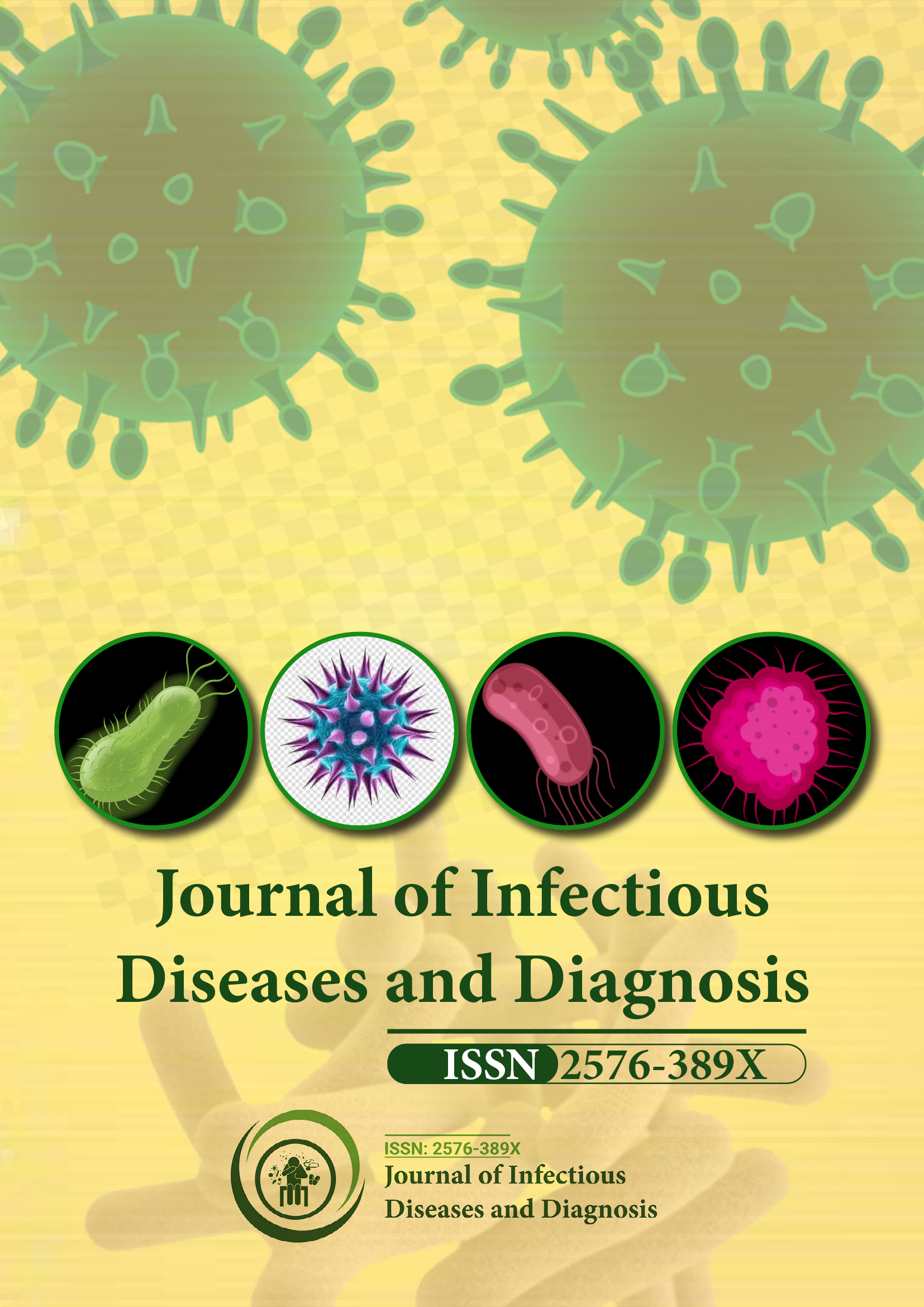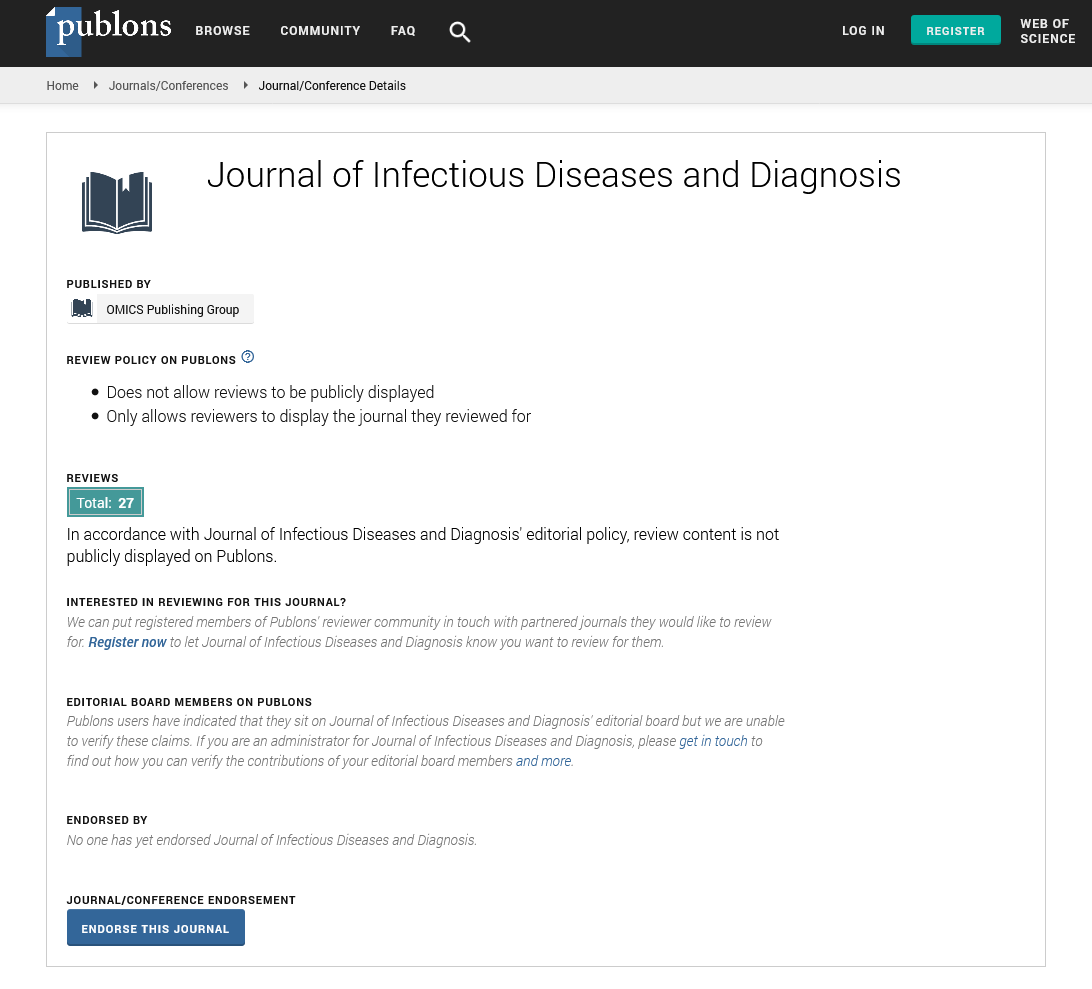Indexed In
- RefSeek
- Hamdard University
- EBSCO A-Z
- Publons
- Euro Pub
- Google Scholar
Useful Links
Share This Page
Journal Flyer

Open Access Journals
- Agri and Aquaculture
- Biochemistry
- Bioinformatics & Systems Biology
- Business & Management
- Chemistry
- Clinical Sciences
- Engineering
- Food & Nutrition
- General Science
- Genetics & Molecular Biology
- Immunology & Microbiology
- Medical Sciences
- Neuroscience & Psychology
- Nursing & Health Care
- Pharmaceutical Sciences
Commentary - (2022) Volume 7, Issue 1
Multidisciplinary Approach in COVID-19 Pneumonia
Tahir Belice*Received: 02-Jan-2022, Manuscript No. JIDD-22-13659; Editor assigned: 05-Jan-2022, Pre QC No. JIDD-22-13659(PQ); Reviewed: 19-Jan-2022, QC No. JIDD-22-13659; Revised: 26-Jan-2022, Manuscript No. JIDD-22-13659(R); Published: 31-Jan-2022, DOI: 10.35248/2576-389X.22.07.163
About the Study
The new Coronavirus Disease 2019 (COVID19) raises global medical challenges. COVID19 pneumonia is a very complex disease. The hypothesis of this study was that an interdisciplinary approach involving experienced diffuse parenchymal lung disease specialists could improve the diagnosis of patients with COVID 19 pneumonia. Two pulmonologists, two radiologists, and two pathologists examined 27 patients who died of severe COVID 19 pneumonia as the diagnosis of the primary non-pulmonologist. A three-step virtual process was planned to assess whether expert input could change the initial diagnosis individually and / or in combination. Pulmonologists, radiologists, and pathologists make each case four different levels of diagnosis, each based on clinical, radiological, and morphological / virological data obtained from autopsy lung specimens. I was asked to classify it as certainty. Examination of the entire lung was considered the gold standard for definitive diagnosis. The probability of a correct diagnosis was calculated, and the effectiveness of the interdisciplinary diagnosis was determined by comparing the diagnosis by an experienced pulmonologist with the diagnosis by a non-pulmonologist.
This study is primarily involved in DPLD interdisciplinary meetings on a daily basis, but has solid experience in the diagnosis and treatment of COVID 19 specialists (pulmonologists, radiologists, pathologists). Was a critical reassessment of the dead patient by a team of experts. Twenty-seven people died of severe COVID 19 pneumonia from March to May 2020 as the main diagnosis by a nonpulmonologist (emergency room clinicians, general practitioners, specialists in infectious diseases, and anesthesiologists). Patients were investigated retroactively. Data on demographics, smoking history, symptoms, comorbidities, treatment, and duration of illness, serology, radiological and pathological findings were entered into REDCap’s dedicated database. Informed consent was obtained from the relatives / legal representatives of each deceased patient. This study was approved by the local clinical review board. The worldwide spread of
SARSCoV2 infection was much unexpected and soon caused a global public health emergency. Like other pandemics, patient care is affected by staff shortages, a chaotic work environment, and high levels of clinical stress. Clinicians had no choice but to provide care in an exceptional environment. In addition, the intensive care unit quickly became saturated, and its overcrowding could hire non-specialized medical staff and expose critically ill patients to mismanagement. Based on this dire experience, COVID19 Healthcare should be properly planned during the current second global wave. Today’s challenge is to make a correct diagnosis considering several pathological conditions that may mimic and / or overlap COVID19 pneumonia with the aim of optimizing patient management and consequently reducing mortality. While our study consisted of retrospective analysis (ie, “going back to a team of experts”), an interdisciplinary approach involving experts with experience in diagnosing and managing DPLD is in patient care. I believe it can bring great benefits. Interdisciplinary assessment has become the gold standard for DPLD diagnosis because it improves diagnostic reliability and agreement between observers compared to the individual components of the interdisciplinary team, as in our study.
Citation: Belice T (2022) Multidisciplinary Approach in COVID-19 Pneumonia. J Infect Dis Diagn. 7:163.
Copyright: © 2022 Belice T. This is an open-access article distributed under the terms of the Creative Commons Attribution License, which permits unrestricted use, distribution, and reproduction in any medium, provided the original author and source are credited.

